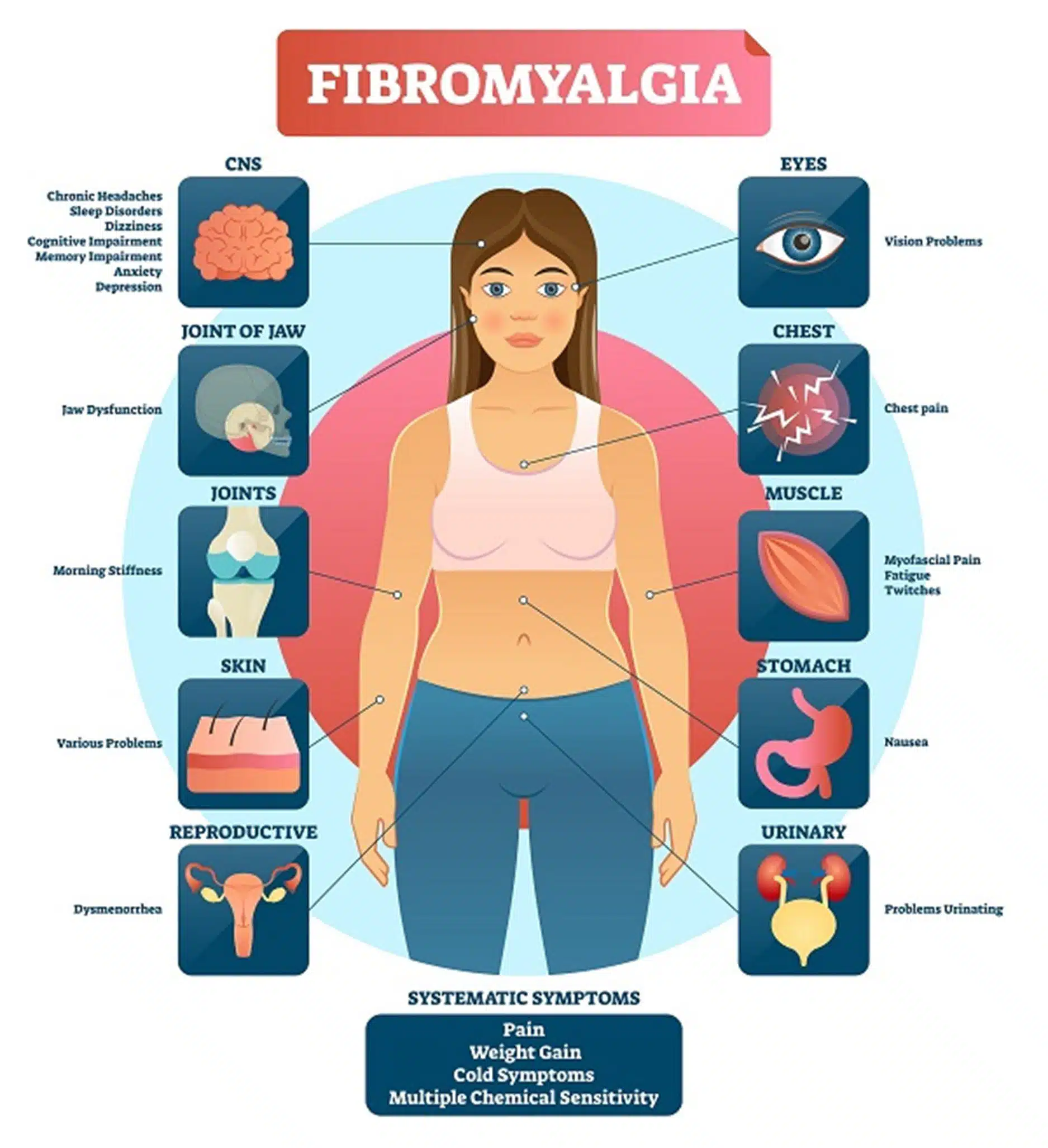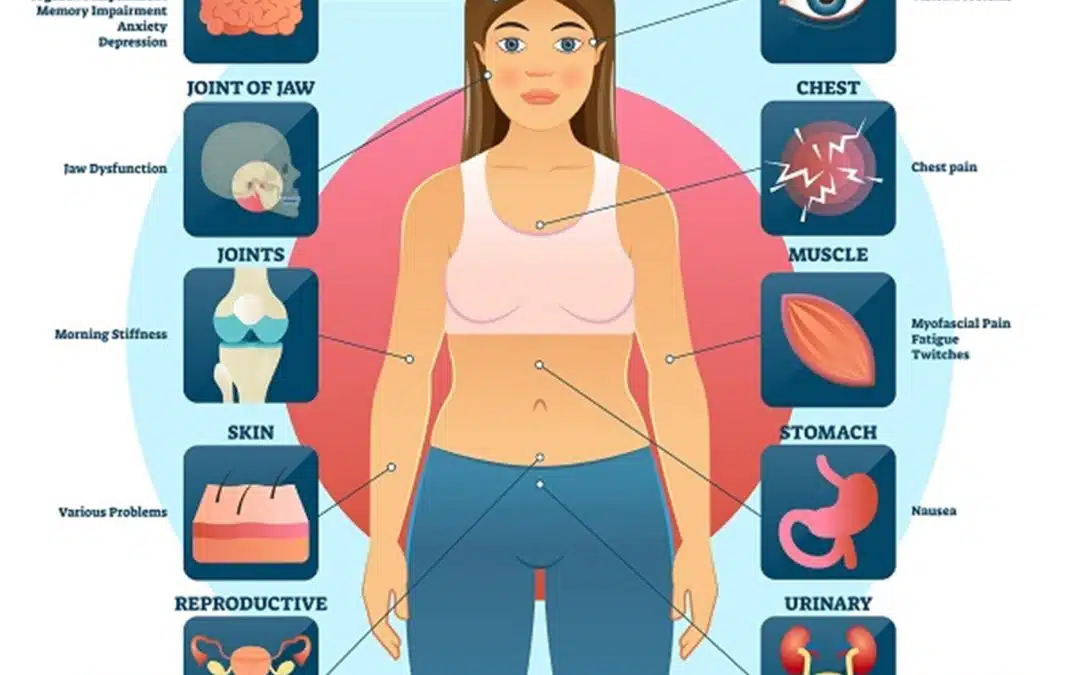Fibromyalgia affects individuals differently. You can actively help to reduce your symptoms. Here are some tips to minimize its potential effects on your daily life.

Exercise
Research has shown that movement is a great way to decrease pain and discomfort and improve our ability to complete daily activity. The following exercise tips can help you get started on the right path!
- Build strength. Start with 5 – 10 minutes of light exercise and gradually increase time and intensity by adding weights or resistance bands. Complete 2-3 times/week.
- Stretch daily to increase mobility. You may find it helpful to stretch before or after exercise or in the evening to relax.
- Moderate aerobic activity can improve your mood and sleep and reduce physical symptoms. Start with an amount you can do comfortably and slowly build to 20-30 minutes at a moderate intensity 3-5 times/week.
- Post-exercise soreness is a normal part of the process and will decrease over time.
Sleep
Poor sleep can increase pain, and pain at bedtime can interfere with restful sleep. Our bodies are able to heal better when we are getting adequate sleep. Here are some tips for better sleep:
- Keep a consistent sleep schedule. Go to bed at the same time and wake up at the same time – even on weekends. Our bodies need that consistency.
- Get as much natural light as you can in the AM. Spend more time outside, especially in the late afternoon and evening. Our brains respond to the cycle of the sun, which regulates our sleep cycle.
- Naps can be helpful to get through the day, limit naps to 20 minutes or less and before 3pm
- Minimize caffeine as much as possible, and especially within 7 hours of bedtime!
- More physical activity and exercise – especially in the afternoon – helps you sleep more deeply. Be careful not to exercise too closely before bedtime.
- Alcohol and nicotine can negatively affect our sleep cycle. A glass of wine may make you fall asleep more quickly, but as soon as your blood alcohol level drops, you may find yourself wide awake.
- Modify your bedroom: Keep the room cool. When the room is too warm, we’re more apt to not sleep as deeply and arouse easier. Minimize light and sound. Sometimes even the light of the alarm clock can be too much! Invest in yourself with really comfortable pillows, bed linens and pajamas.
- Have a relaxing bedtime routine – and stick to it every night – so that your body knows that it’s time to sleep. Listen to soft music, spend a few minutes breathing deeply or doing whatever works for you!
Emotional Care
It is essential to develop coping strategies to deal with the physical and emotional stressors. Fibromyalgia can be hard for family and friends to understand. It is possible that they may not fully comprehend what you are going through. Learn more about fibromyalgia and how you can educate your friends and family.
A few helpful websites include:
- Mayo Clinic: www.mayoclinic.com/health/fibromyalgia/DS00079
- National Fibromyalgia Association: www.fmaware.org
- American Chronic Pain Association: www.theacpa.org
Other tips:
- Consider an online or in-person support group.
- Discover ways to manage stress, such as meditation and visualization exercises.
- Explore cognitive behavioral therapy with a mental health practitioner. It can help you see how your thoughts and interpretations affect how you feel.
- Take some time every day to think about the positive aspects of your life.
Previously posted on December 19, 2018


